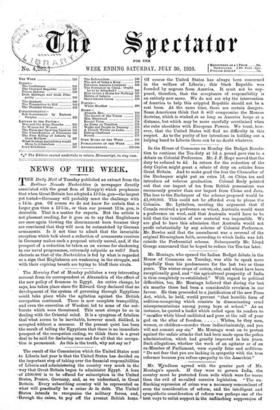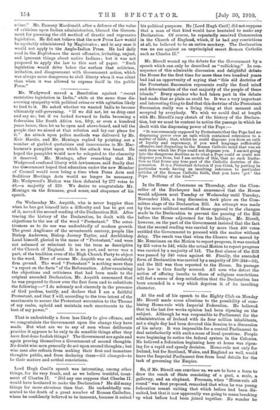Mr. Wyndham agreed with the greater part of Mr. Montage's
speech. If they were to govern India, the country must be protected from evils which were far worse than the evil of so-called coercive legislation. " The un- flinching repression of crime was a necessary concomitant of even the' consideration. of reform, and the intelligent and sympathetic consideration of reform was perhaps one of the _ beat ways to enlist support iir the unflinotring suppreasion of crime." Mr. Ramsay Macdonald, after a defence of the value of criticism upon Indian administration, blamed the Govern- ment for pursuing the old method of drastic and repressive legislation. He did not believe that the ne* Press Law wotild be equitably administered by Magistrates ; and in any case it would not apply to the Anglo-Indian Press. He had daily read in the Englishman the most offensive, irritating, unjust, and ignorant things about native Indians ; but it was not proposed to apply the law to this sort of paper. "Such legislation would drive below the surface that criticism, irritation, and disagreement with Government action, which was always more dangerous to civil liberty when it was silent than when it was allowed to express itself in the public Press."







































